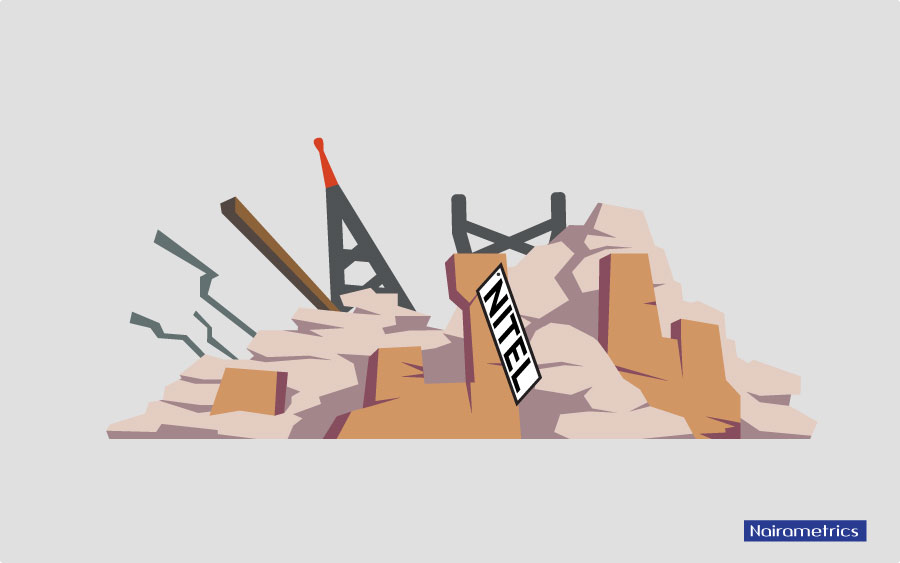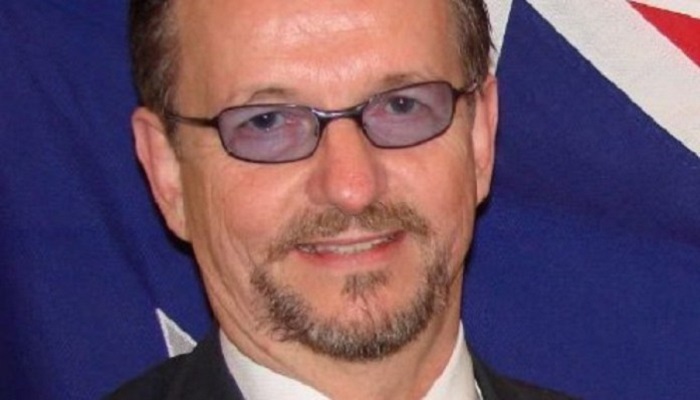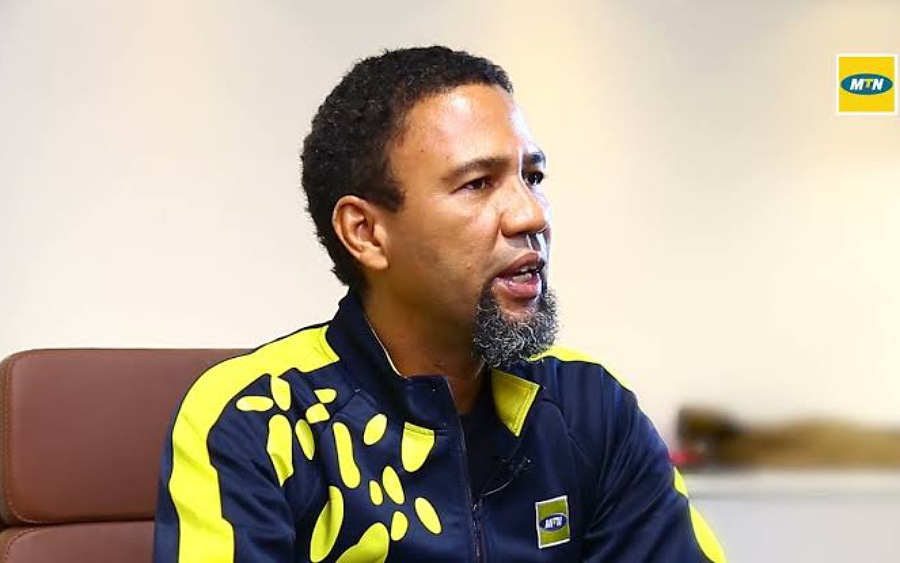NITEL could be best described as an epic representation of a government institution that failed repeatedly, despite several attempts to revamp it.
Hence, it piques the interest of stakeholders as to how a Nigerian based consortium, NATCOM, was able to turn around NITEL’s fortunes after successfully acquiring it.
Since the company made its first on-net test data call in Lagos on Monday, January 18, 2016, and followed with its first on-net Voice-over-LTE (VoLTE) call in Lagos on Thursday, February 25, 2016; Ntel has continued to run without looking back, obviously learning from the mistakes of NITEL.
How it began
After Nigeria gained independence in 1960, the control of the under-developed telecommunications sector was consigned to the Nigerian Post and Telegraph (P&T), an agency owned and managed by the federal government.
Nigeria had only 18,724 telephone lines at the time, so the agency had little on its plate. Two decades later, the government established the Nigerian External Telecommunications (NET) to provide external communications services.
NET and the telecommunications arm of P&T were later merged following the demand for commercialization of telecommunications services.
Nigerian Telecommunications Limited (NITEL) was born out of this merger in 1985 and saddled with the responsibility of meeting the telecommunications needs of Nigerians.
MTEL falls short of expectations
Despite the huge amount of funds invested annually in the agency, NITEL was unable to expand its installed capacity beyond 700,000linesup until 2001 when the government started its deregulation moves.
NITEL introduced mobile telephony in 1992 through a partnership with an Atlanta-based firm, but nothing changed.
Operations remained inefficient, lines congested, billing system unreliable and call completion rate for long-distance calls remained below 50%. By the mid-90s, it was obvious that NITEL lacked adequate capacity to meet the growing demand for its services.
MTEL was then established in 1996 as the mobile arm of NITEL, to provide cellular services and sustain the business of NITEL in the deregulated telecom sector.
The government had high hopes in this new arm and its ability to expand access to information and communications technology (ICT) in Nigeria, that when other private investors joined a competitive bid for the GSM licence in Nigeria in 2001 at an exclusive sum of $285 million, MTEL got its Digital Mobile Licence from NITEL on a platter, without any hassle. MTEL also inherited infrastructure from NITEL, so it started off on the front foot.
With this edge, MTEL could have easily offered quality services at a competitive price to Nigerians, while the other GSM companies were struggling to take off, but this did not happen.
Like most other businesses run by the government, MTEL barely took off before crashing, especially since the competition comprised of businesses run by shrewd private businessmen and investors. By this time, the government had realised it had no ‘business’ in business, hence the decision to privatise it.
Struggling to sell
If anyone had thought the government was sloppy in running a business, he must have realised how wrong he was when something as simple as selling off the business took an entire decade without success.
In 2001, Investors International London Limited (ILLL) made an unsuccessful attempt to acquire NITEL. The consortium appeared capable of changing the NITEL narrative with its international clout and local backing, but the failure to pay up the bid price of $1.32billion left investors biting their fingers. They lost out and could not even recover the part sum already paid.
Thereafter, Pentascope of Netherlands put in a bid but after signing the management contract to resuscitate the company, the deal hit the rocks.
In less than a year from April 2003, Pentascope had squandered the N15 billion which it inherited, to record a loss of N19.15 billion, with a significant slump in turnover.
The crisis which followed later revealed that Pentascope should never have landed the contract, since the bid specified a telecoms firm of international repute; whereas, Pentascope was just a young consultancy firm with no relevant pedigree. The big question then was, “why were they chosen for such a herculean task?”
As the House of Representatives’ probe later revealed, due diligence was not followed in awarding the contract and the selection process was shambolic.
After a failed pitch from Orascom, Transcorp acquired NITEL for $500 million in 2006, but after some financial issues, the Federal Government revoked the acquisition and set up a Technical Board of Management with members drawn from various MDAs to handle the administration of NITEL and MTEL, until the completion of the sales process.
Subsequently, New Generation Consortium attempted to acquire it with an offer of $2.5 billion but also failed due to payment default. Omen attempted an offer price of $956.9 million and failed too.
In view of the several failed attempts, the National Council on Privatisation (NCP), in February 2012, approved that the privatization of NITEL and MTEL be done through “guided liquidation,” where the core assets and business undertaking of NITEL and MTEL would be sold as single or multiple lots to a qualified bidder under the guidance of the NCP.
Over the next 2 years, the Bureau of Public Enterprises (BPE) received expressions of interest from 17 bodies and shortlisted 2 applicants – NATCOM Consortium led by Tunde Ayeni and NETTAG Consortium.
On December 3, 2014, NATCOM emerged as the preferred bidder with $252.5 million, and sealed the deal with complete payment of the sum in April 2015 to become the full owners.
Among other assets acquired, NATCOM received the licences and the spectrum, the nationwide fixed wired networks, the fibre optic transmission backbone, the national right of way duct system, international gateway earth stations, microwave transmission equipment/network and towers, the CDMA network system, the Mtel GSM network including mobile switching centres, base station controllers, base transceiver stations and the general packet radio services.
Also, included were the analogue (TACs) system and other core assets, as well as the SAT-3 international submarine cable, with NITEL owning 6.32 per cent shareholding in the consortium.
A new beginning with NATCOM /NTEL
Trading with the name NTEL, NATCOM Development & Investment Limited got to work immediately, trying to revamp a comatose company. Besides an inherited liability of N43 billion in pensions, there were a lot other renovations to be dealt with.
It has since launched its 4G LTE network with coverage in Lagos, Abuja and Port Harcourt, and plans to expand its LTE Advanced mobile services including VoLTE, high-speed internet access, messaging and video services, international bandwidth, and international voice termination to other states.
In an interview, CEO of NTEL, Kamar Abass, noted that the company had to invest as much as $1 billion to put most of the dilapidated infrastructure back into use. In spite of the hurdles, the company, within its first 6 months of operation, attained full network coverage in Abuja, across large swathes of Lagos and then parts of Ogun, Nasarawa, and Niger states.
It launched full VoLTE services, signed a landmark deal with Samsung, perfected its selfcare recharge via its website, and transformed the broadband landscape with its superfast and unlimited data propositions.
Nigeria’s fifth mobile operator started growing its subscriber base gradually and creating thousands of jobs along the value chain. The company and its staff have also carried out several corporate social responsibilities over the years.
In 2018, NTEL emerged telecoms company of the year at the Leadership Annual Conference and Awards.
Right after the acquisition, Nigerian business tycoon, Gen. TY Danjuma, was announced Board Chairman, with Dr. Tunde Ayeni as Vice Chairman. Captain Idahosa Okunbo, Abiola Ayeni, Kasheem Shettima, Philip Chukwu, Kola Adesina, John Darlington, Dan Kunle, Babatunde Omotoba and Kamar Abass also joined as Board members.
Meanwhile…
Even after the acquisition, NITEL is still involved in lingering controversies. There was a rumour of a N41 Billion fraud involving NITEL in liquidation, and this version of the story pointed fingers at some top banks in the country, causing them to scurry around in a bid to clear their name.
In May 2020, about 8000 retirees and pensioners of the NITEL/MTEL decried the refusal of the government to pay their housing funds and 83 months accrued pension arrears, even though it was captured in the 2020 budget, and their colleagues in other agencies had been paid since 2019.
The Economic and Financial Crime Commission (EFCC) is still prosecuting defendants since 2014 over theft of lands and properties belonging to the now-defunct NITEL.
One could say NITEL was bad news and all, but even its acquisition has not brought an end to the associated crisis.























You still need more info on this to complete your write up. Till date former NITEL/MTEL staff are still being owed, please beg Federal Government to release their money as some have died of starvation. This is a call for help.
Am a staff of Nitel Mtel. We have registered association and follow up with Presidency to pay us our benifts. This story is half truth. The truth will come up. Nitel Mtel is still at liquidation because liquidator was appointed by compitent court to liquidate Nitel Mtel and liquidator was appointed now set aside. It was not quided liquidation as claimed.
That was a good article. But it could do with more research. It would have been better appreciated if figures were supplied to show government funding of NITEL before it was privatized. This is important since it was stated that huge funds were invested annually in NITEL.
Well informed Telecom analysts generally agree that the main problem of NITEL before it was privatized was under funding and under investment.
Finally, what’s the source of the information that Pentascope squandered the N15billion it inherited?
Ruth, you probably didn’t have the real facts of Nigel privatization. Fistrly, Nigel was sold to Ntel as a liqudeted company, which means no liability was transferred to Ntel. Hence I cant see the justification for the N41bn liability claim. Secondly, the mobile arm of Nigel paired competitively well amongst Mtn and Econet of those days in terms of operational coverage, QoS and revenue. The promoters of Nigel privatization hinged their arguments on the inefficiency and corruption ridden Nitel LANDLINE business, but not Mtel and other services like Sat-3. And history has vindicated those having a contrary view of selling Nigel. The new NTEL as bought and operated cannot be said to have shown significant improvement over what Nigel offered. Both in terns of OPERATIONS and PROFITABILITY.
This is so true. There was no justification to privatize MTEL and other very viable assets of NITEL, except her landlines. Greedy politicians simply saw an opportunity to hijack a good business to serve their personal interests. How do you sell an ultramodern network that was light years ahead of her piers. 0704 was warming up to be the AT&T of Africa, way ahead of MTN, ECONET, etc. In MTEL’s 0704, ERICCSON built a 5G ready network then. So much evil has been done to our people by utterly wicked people. More research is needed to expose the evil that was done to our people and our national security with the hijack of NITEL.